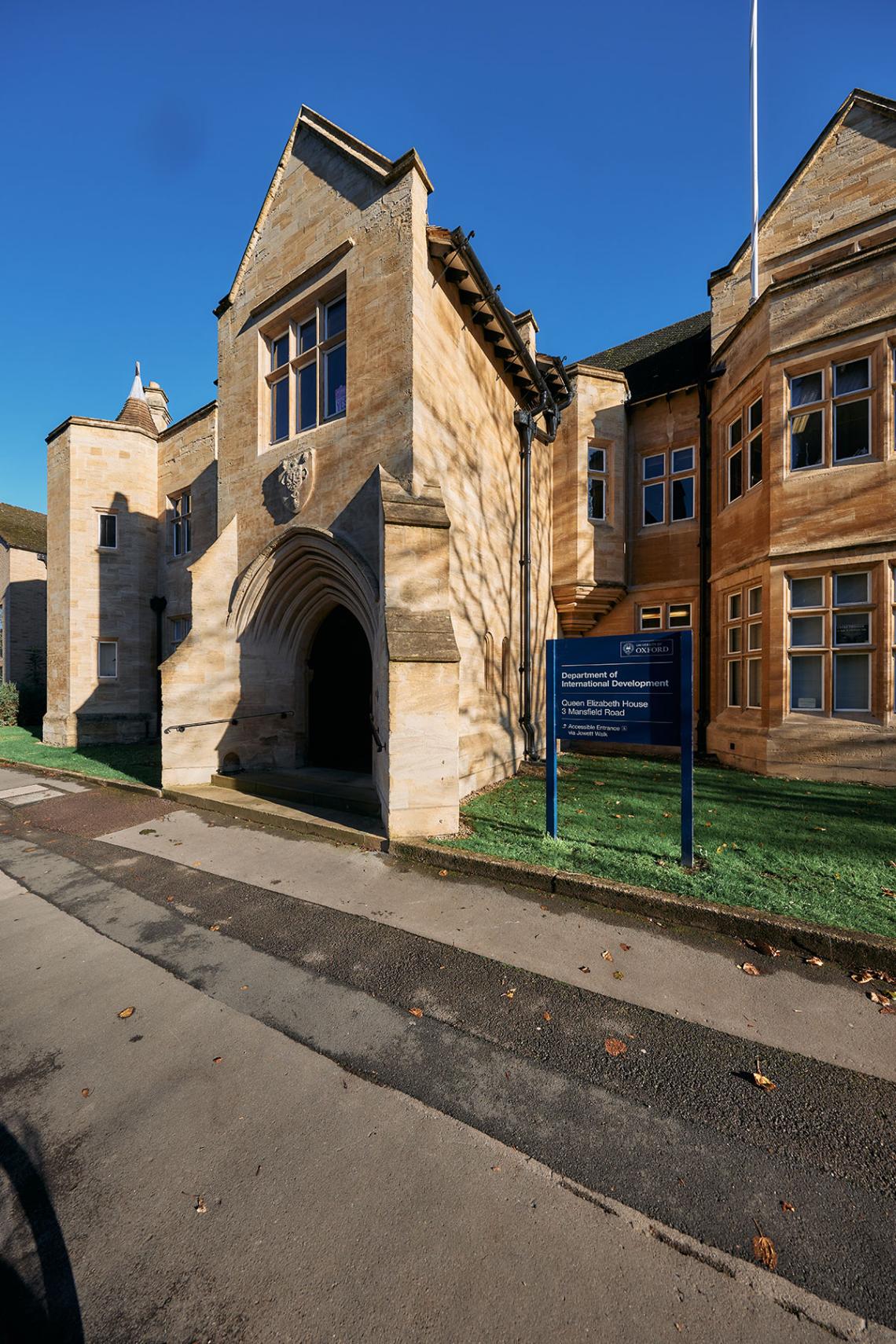Oda Eide, Anvita Ramachandran and Nico Scherer win 2023 MPhil prizes
Congratulations to Oda Eide, Anvita Ramachandran and Nico Scherer who have won the 2023 prizes for their performance in the MPhil in Development Studies.

Oda Eide of Wolfson College won the Eugene Havas Memorial Prize, the prize for the best overall performance.
Oda's thesis focused on the experiences of young jobseekers looking for work in the formal economies of urban South Africa. Through an ethnography of formal labour brokers in Johannesburg – organisations looking to connect long-term unemployed youth to opportunities in the formal economy – she examined how recent digitalisation efforts in the labour brokerage sector have given rise to gendered shifts in the make-up and experiences of the intermediate labour force. Formal labour brokers were found to hold value beyond merely that of connecting their users to employment. Instead, they are avenues of social belonging, recognition, and attachment to the often elusive concept of 'formality' for youth who have been permanently excluded from formal employment. Efforts to move these institutions from the physical to the digital realm thus give rise to complex shifts in the social meanings and use-values they hold in young jobseekers' lives.
Oda is staying at ODID to do the DPhil in International Development, where she will be expanding on her MPhil research.
Anvita Ramachandran of Jesus College won the Papiya Ghosh Prize, the prize for the best thesis.
Anvita’s thesis investigated the welfare impacts of internal migration in India, to unpack why migration rates have remained low and static despite the substantial spatial disparities in opportunities and living standards in the region. In a quantitative analysis, she showed that migrants benefit from greater consumption growth compared to non-migrants, but (paradoxically) fare no differently in terms of subjective well-being. A subsequent qualitative analysis examined this empirical puzzle, highlighting the high non-monetary costs that impede rural respondents from taking advantage of opportunities in urban areas – including the worse living and working conditions, poorer mental and physical health, and the lack of social networks in the destination.
A key conclusion was that migration may not serve to reduce rural-urban wage gaps if the monetary returns to migration are necessary to compensate for the high non-monetary costs. Hence, the study prompts a deeper reflection on the role of internal migration in improving welfare and supporting the development process.
Anvita is also now continuing onto the DPhil in International Development, where she plans to further explore topics related to labour and migration in India, from both the individual and the firm perspective.
Nico Scherer of St Antony’s College won the Examiners prize
Nico’s thesis critically examined the material culture of humanitarian aid. Specifically, it analysed how the Toyota Land Cruiser, a car that has become a symbol of international humanitarian interventions, shapes aid operations. Through qualitative interviews with humanitarians in various roles, document analysis, and observations in humanitarian compounds in Kenya, the thesis presented three key arguments. First, the Land Cruiser shapes the way humanitarians perceive and respond to ‘emergency’ situations. Second, the vehicle crucially shapes the day-to-day security management of humanitarian organisations. Third, the Land Cruiser contributes to the construction of a particular ‘humanitarian identity’ to which, however, not all humanitarians appear to have the same access.
Currently, Nico is doing an internship with the United Nations Office for the Coordination of Humanitarian Affairs in New York. Looking ahead, he is determined to continue working in the field of humanitarian aid.

